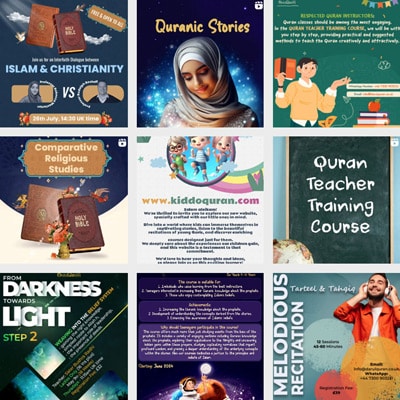Arabic is a captivating and melodious language with a rich history and cultural significance. Whether you are interested in understanding the Quran, communicating with Arabic speakers, or exploring Arab literature, embarking on the journey to learn the Arabic language can be a rewarding and transformative experience. In this article, we will explore some effective strategies and tips to help you on your path to mastering the Arabic language.
- Set Clear Goals
Before diving into learning Arabic, it’s crucial to set clear goals. Determine why you want to learn Arabic and what you hope to achieve. Whether it’s acquiring conversational skills, reading Arabic texts, or understanding the intricacies of Arabic grammar, setting clear goals will guide your learning process and help you stay motivated along the way.

- Choose a Learning Method
There are various approaches to learning Arabic, so choose a method that aligns with your learning style and preferences. Options include:
- Formal Classes

Before diving into learning Arabic, it’s crucial to set clear goals. Determine why you want to learn Arabic and what you hope to achieve. Whether it’s acquiring conversational skills, reading Arabic texts, or understanding the intricacies of Arabic grammar, setting clear goals will guide your learning process and help you stay motivated along the way.
- Self-Study

Utilize textbooks, online resources , mobile apps, and language-learning platforms to learn independently. This method allows for flexibility and self-paced learning, but self-discipline and perseverance are key.
- Language Exchange
Find a language exchange partner or participate in language exchange programs. Engaging in conversations with native Arabic speakers can enhance your speaking and listening skills while immersing yourself in the language.
- Start with the Basics
Begin by learning the Arabic alphabet and pronunciation. Familiarize yourself with the script and the unique sounds of the language. Practice writing and sounding out letters, as this will lay a strong foundation for future learning. - Build Vocabulary
Acquiring a robust vocabulary is essential for communication in any language. Begin by learning commonly used words and phrases relevant to your goals. Use flashcards, vocabulary lists, or language-learning apps to expand your Arabic vocabulary. Aim to learn new words systematically, and reinforce what you’ve learned through consistent practice and contextual usage. - Grammar and Sentence Structure
Arabic grammar may seem challenging initially, but learning the basics is crucial for understanding sentence structure and producing coherent sentences. Start with the fundamentals such as verb conjugation, noun-adjective agreement, and sentence construction. Online resources, grammar books, and exercises can help you grasp Arabic grammar rules gradually. - Listen and Speak
Immerse yourself in the language by actively listening to spoken Arabic. Watch Arabic movies, listen to Arabic poetry, and engage with Arabic-speaking communities. Practice speaking regularly, even if it’s with language partners or through language exchange platforms, to improve your fluency and pronunciation.

- Read and Write
Develop your reading skills by practicing with Arabic texts and gradually progressing to more complex materials. Start with simple children’s stories, news articles, or Quranic verses, and gradually move on to more challenging texts. Practice writing by keeping a journal or joining online writing communities to receive feedback from native speakers.

- Seek Guidance
Consider enrolling in Arabic language courses , either online or at language institutes. Experienced teachers can provide guidance, structure, and valuable feedback to facilitate your learning process. They can also offer insights into the cultural nuances and linguistic intricacies of the language. - Be Consistent and Persistent
Learning a new language requires consistency and perseverance. Dedicate regular study sessions to practice Arabic. Set aside time each day, even just a few minutes, to review vocabulary, practice reading, listening, or engaging in conversation. - Embrace the Culture
Immerse yourself in the Arab culture to enhance your understanding of the language. Explore Arabic literature, watch Arabic movies, listen to Arabic poetry, and learn about the customs and traditions associated with the language. This cultural knowledge will deepen your appreciation and connection to the Arabic language.

- Enjoy the Journey
Learning Arabic is a lifelong journey, and it brings great joy and fulfillment. Embrace the challenges, celebrate your progress, and maintain a positive mindset. Immerse yourself in the beauty of the language and the culture it represents.
Remember, learning Arabic requires dedication, patience, and perseverance. By following these strategies and adapting them to suit your learning style, you can embark on a successful journey towards mastering the Arabic language. Stay motivated, seek out resources and communities that support your language learning goals, and immerse yourself in the linguistic and cultural riches that await you on this captivating path.
The choice of academy plays a crucial role in learning a second language. If you are interested in learning Arabic as your second language, we would be delighted to assist you in achieving your language learning goals through our online classes. Our qualified and experienced instructors at DarulQuran academy will guide you through the process, ensuring that you experience the convenience and flexibility of our online classes. By joining our courses, you can learn at your own pace and according to your schedule.
Enroll in our online language learning classes today. Start your language journey with us!
For more information, you can visit the website of DarulQuran academy:
https://darulquran.co.uk/courses/arabic-language/

















